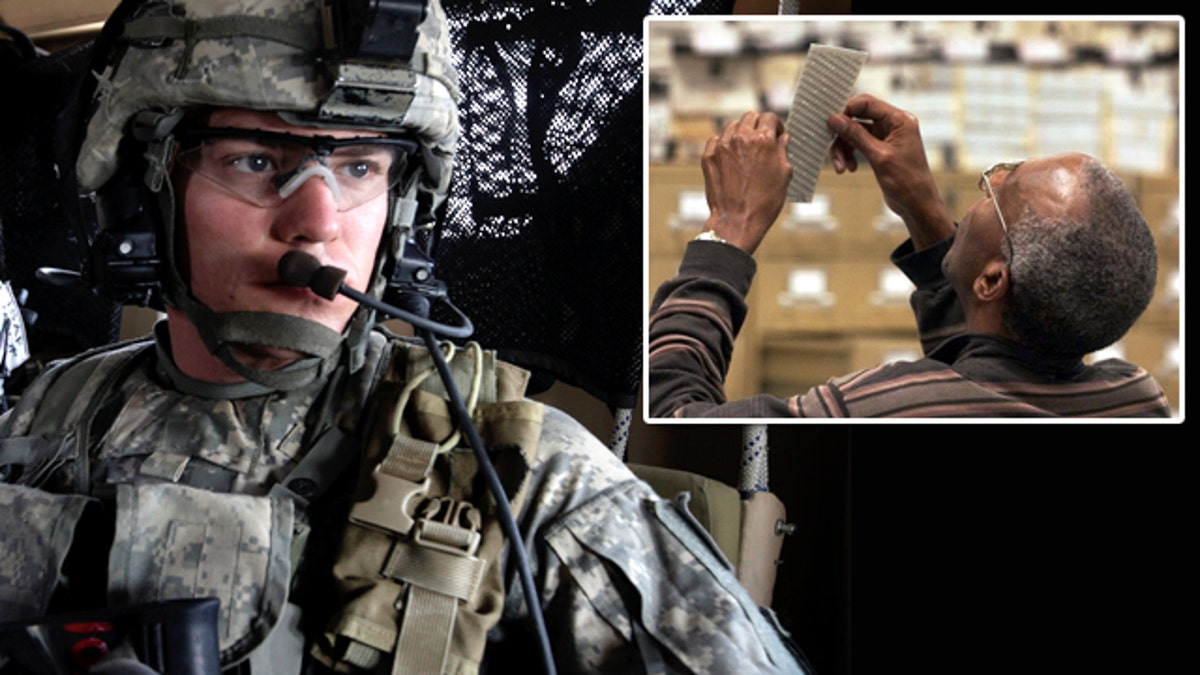
The Move Act required all states to mail absentee ballots to overseas military voters 45 days before Election Day. (AP)
The Department of Defense announced Friday that it was denying four states' requests to waive requirements of a law intended to protect the voting rights of military personnel overseas, but five other states were granted exemptions because their alternative accommodations were deemed adequate.
The states denied exemptions to the Military and Overseas Voter Empowerment Act were Alaska, Colorado, Hawaii and Wisconsin, as well as the District of Columbia and the Virgin Islands. Waivers were granted to Delaware, Massachusetts, New York, Rhode Island, Washington.
The MOVE Act requires states to send absentee ballots to military and overseas voters covered by the Uniformed and Overseas Citizens Absentee Voting Act no later than 45 days before an election for federal office starting with this fall’s elections, election. In accordance with the MOVE Act, states are allowed to apply for a waiver from the 45-day ballot requirement.
U.S. Department of Justice spokeswoman Xochitl Hinojosa said the department was working with those denied to bring them into compliance. The department will file lawsuits against any state that doesn't voluntarily comply, she said.
The Wisconsin board that regulates elections issued a statement saying it was committed to ensuring all military and overseas voters fully participate in elections and will begin working immediately with the DOJ to work out what steps to take next.
Wisconsin election director Kevin Kennedy said before the decision was handed down that a denial would not change how the state holds its Sept. 14 primary. Under the new federal law, ballots to members of the military and others living overseas have to be sent 45 days before the Nov. 2 election.
Wisconsin and other states with August and September primaries sought the waiver saying they don't have enough time to formalize the ballot and get it sent to those voters by the Sept. 18 deadline.
Minnesota and Vermont responded to the law by moving their Sept. 14 primaries back to August. Maryland initially asked for a waiver for its Sept. 14 primary, but then determined it could get the ballots to military and overseas voters before the election.
The head of a nonprofit group that advocates for military and overseas voters said the 45-day requirement under the law isn't that big of an issue because all states can e-mail ballots to voter.
The 45-day requirement was the worst-case scenario for how long it would take a ballot to be sent and returned by mail, said Susan Dzieduszycka-Suinat, president and of the Overseas Vote Foundation.
Of those that requested a waiver, three have already had their primaries — Colorado on Aug. 10, Washington on Aug. 17 and Alaska on Aug. 24. Six of them are on Sept. 14 — Delaware, New York, Massachusetts, Rhode Island, Wisconsin and Washington, D.C. The Virgin Islands' primary is Sept. 11 and Hawaii's is Sept. 18.
The Associated Press contributed to this report.




